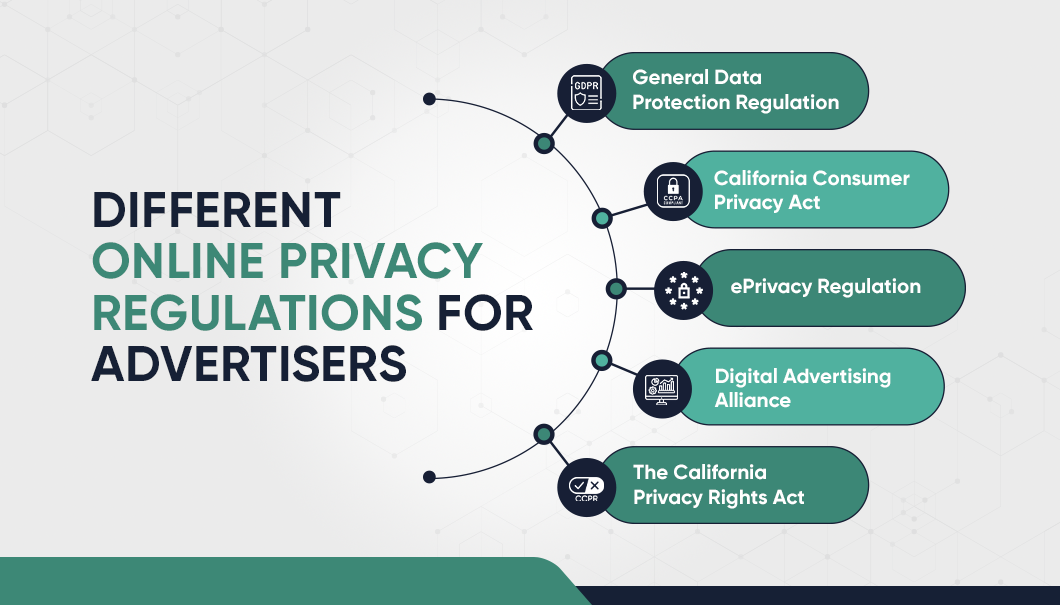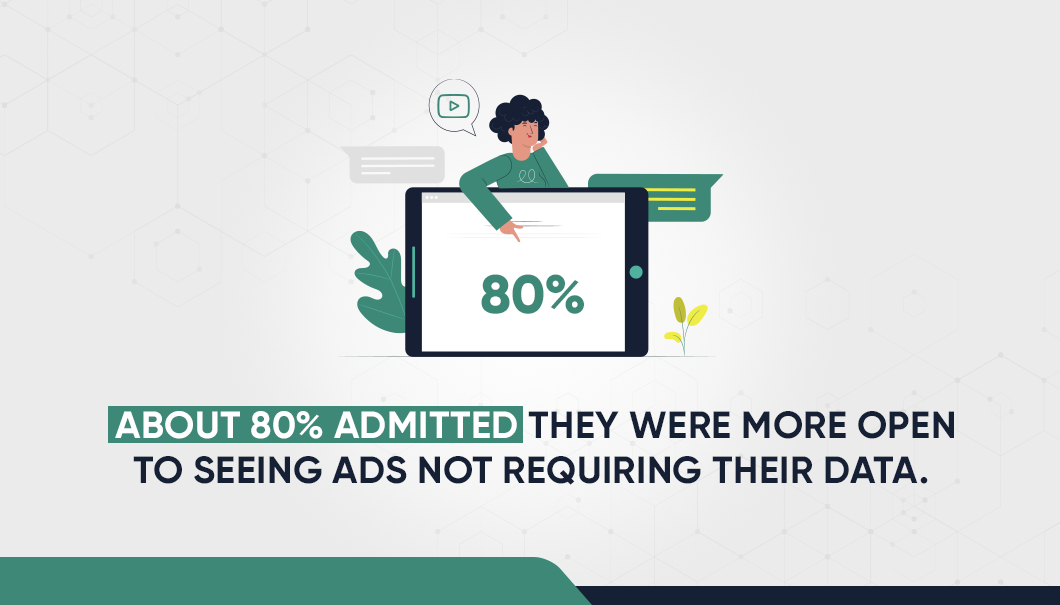Contextual Ad Targeting Allays Consumer Privacy Concerns | 30 Jul, 2020

In recent years, advertisers have increasingly relied on third-party cookies to serve personalized ads that are relevant to consumers’ interests and behaviors.
However, with growing concerns about consumer privacy and data protection, particularly with the implementation of data privacy regulations like the General Data Protection Regulation (GDPR) and the California Consumer Privacy Act (CCPA), and Google’s decision to gradually phase out third-party cookies in its Chrome browser; marketers are now looking for safe and innovative ways to target consumers.
Contextual ad targeting has emerged as a solution that allays these concerns while still delivering relevant ads to consumers.
Read this informative blog to discover more about contextual ad targeting and its crucial role in addressing users’ privacy concerns.
Understanding Contextual Ad Targeting
Contextual ad targeting involves analyzing the content of the web page where the ad will be placed and delivering an ad, that is, relevant to that content.
For example, if the page is about travel; there is a high chance that ads for airlines, hotels, or travel agencies will be displayed. Contextual ad targeting doesn’t rely on tracking user behavior, making it a privacy-friendly alternative to other forms of advertising.
How Contextual Advertising Can Solve the Problem of Privacy?
One of the main reasons why advertisers should choose contextual advertising as their preferred targeting option is because it respects user privacy.
With this method, advertisers don’t have to collect and store personal data about users, which is, a concern for many people. By avoiding the use of cookies or other tracking technologies, consumers are able to browse the internet without feeling constantly observed by advertisers.
One more advantage of contextual ad targeting is that it provides consumers with a higher number of relevant ads. When ads are displayed based on the content of the page, they are more likely to be of interest to the user, increasing the likelihood of their engagement.
For example, if a user is reading an article about fitness, they are more likely to click on an ad for workout gear than for a new car.
Contextual ad targeting is also beneficial for advertisers. By displaying ads based on the content of the page, advertisers can be sure that their ads are shown to an audience, that is, interested in their products or services. This means higher chances of clicks and conversions, resulting in higher ROI on their ad spends.
What are the Different Online Privacy Regulations Advertisers Must Know?

1. General Data Protection Regulation (GDPR): This regulation was implemented by the European Union in May 2018 and applies to all companies that process the personal data of EU citizens. It gives individuals more control over their personal data and requires companies to obtain explicit consent for data processing.
2. California Consumer Privacy Act (CCPA): This is a privacy law that was enacted in California in 2020. It gives California residents the right to know what personal information is being collected about them by businesses, and the right to request that their information be deleted.
3. ePrivacy Regulation: This regulation is currently being developed by the European Union to replace the ePrivacy Directive. It will regulate electronic communication services’ privacy, including the use of cookies and other tracking technologies.
4. Digital Advertising Alliance (DAA) Self-Regulatory Program: This program is a self-regulatory initiative for online behavioral advertising in the United States. It aims to provide consumers with transparency and control over their online data by offering an opt-out mechanism for personalized advertising.
5. The California Privacy Rights Act (CPRA) is a privacy regulation that builds upon the California Consumer Privacy Act (CCPA). It was passed in November 2020 and came into effect on January 1, 2023. The CPRA expands on the CCPA’s requirements and gives Californian consumers additional privacy rights, such as the right to correct inaccurate personal information, the right to limit the use of sensitive personal information, and the right to opt out of the sharing of their personal information.
These are just a few examples of online privacy regulations that exist around the world. It’s important for advertisers to stay up to date on these regulations and ensure that they are in compliance to protect the privacy of their users.
Are Targeted Ads an Invasion of Privacy?

Targeted ads can be considered an invasion of privacy because they often rely on the collection and analysis of personal data in order to deliver personalized advertisements to individuals. This can include information such as browsing history, search queries, location data, and demographic information.
While targeted ads can be helpful in providing individuals with relevant information and offers, they can also be intrusive and make people feel uncomfortable or violated.
Here are some statistics that shed light on the privacy implications of targeted ads:
1. According to data, 66% of consumers said that they were uncomfortable with businesses and brands tracking their browsing history to show them personalized ads.
2. 86% of Americans feel that businesses and organizations collect more personal information than they actually require.
3. 81% of respondents feel they have little to no control over their personal data once it is shared with companies.
4. The survey also found 64% of consumers online have stopped doing business or engaging with an organization because they were asked to provide too much personal information.
5. Nearly two-thirds of Americans believe that the risks associated with their personal information are increasing faster than businesses and organizations can keep up with.
These statistics indicate that while targeted ads can be profitable for businesses, they are not necessarily popular with consumers. Many people are uncomfortable with the idea of their online behavior being tracked for advertising purposes, and some believe that targeted ads are unethical.
Conclusion
In conclusion, contextual ad targeting has emerged as a privacy-friendly solution to personalized advertising. By analyzing the content of the web page where the ad will be placed, advertisers can deliver relevant ads to users without relying on personal data or tracking technologies. This approach benefits both consumers and advertisers, as it respects privacy while still delivering effective advertising.

BLOGS
Breaking Tradition: Innovative Marketing Strategies for Vietnam Tet 2025
One of the most significant cultural events for the Vietnamese, Tết Nguyên Đán, or the Vietnamese Lunar New Year, is almost here. Marking the beginning of spring, this time of year has, for generations, been a season for family gatherings, delicious feasts, and honoring ancestors. The week-long holiday witnesses the ...

BLOGS
5 Proven Black Friday and Cyber Monday Marketing Strategies for 2024
Black Friday and Cyber Monday (BFCM) are no longer exclusive to the U.S. market. It has gone global and is now one of the most important dates when every business wishes to ensure a spike in their online or in-store sales. With customers hunting for the deal, e-commerce businesses and ...

BLOGS
Why News Content is a Goldmine for Advertisers: Debunking Brand Safety Myths
Brand safety concerns have long clouded advertising alongside news content. As a marketer and advertiser, you might think twice before placing your ads against news stories, fearing harm to the reputation of your brand. However, new findings by Stagwell challenge those longtime fears, showing that advertising in news environments could be ...







